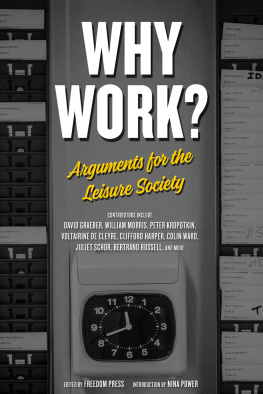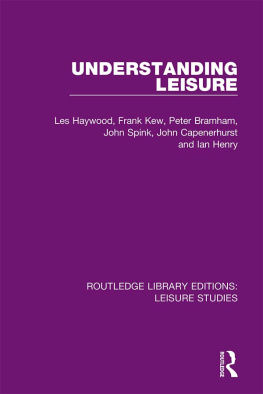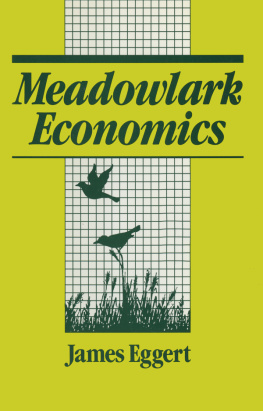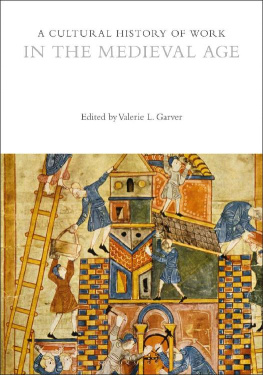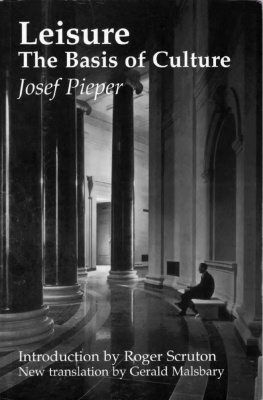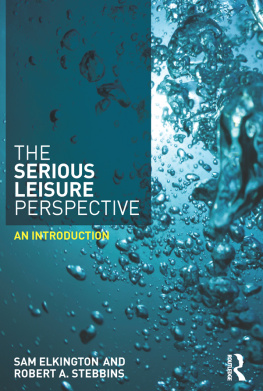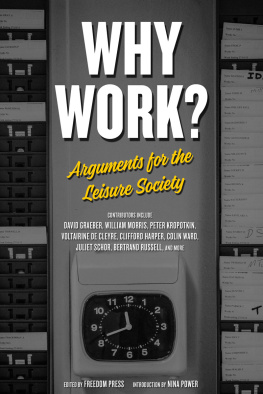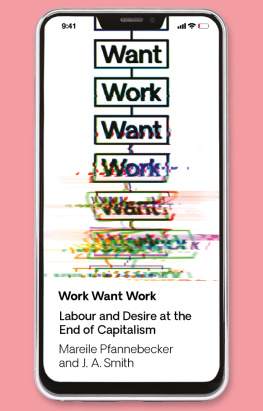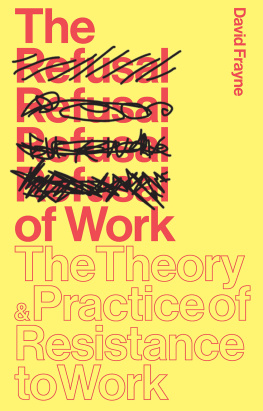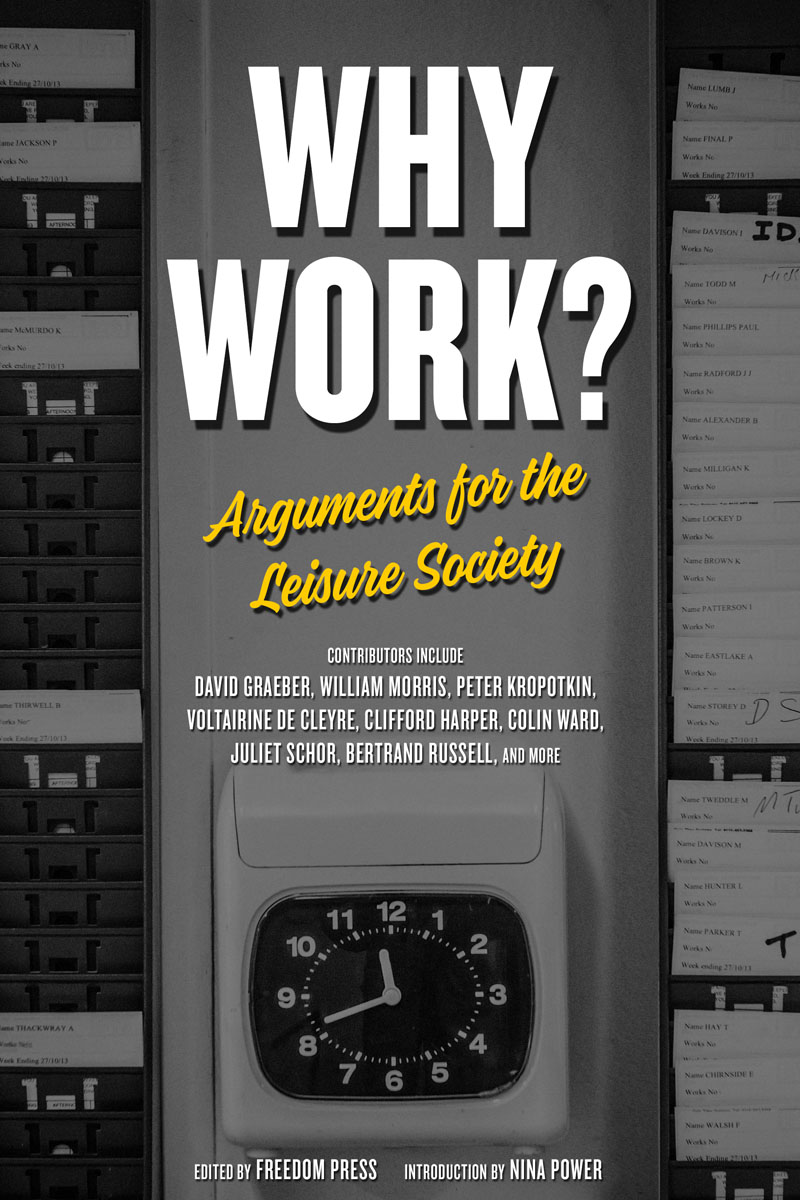
Why Work? Arguments for the Leisure Society
This edition 2019 PM Press and Freedom Press
All rights reserved
Printed 1983, 2016 by Freedom Press
Original edition edited by Vernon Richards
ISBN: 978-1-62963-576-7
Library of Congress Control Number: 2018931527
Cover by John Yates/stealworks.com
Editing and design by Rob Ray
PM Press
PO Box 23912
Oakland, CA 94623
www.pmpress.org
Freedom Press
84b Whitechapel High St, London
E1 7QX
www.freedompress.org.uk
10 9 8 7 6 5 4 3 2 1

Editors notes
The 1983 version of Why Work, edited by Vernon Richards, was a thought-provoking book. However, some elements of it, including his original introduction, were stacked full of statistics and writing that was laudably up to the minute at the time, but didnt age well. Other pages included letters or illustrations which we cant verify the copyright on. This new version aims to treat Richards collection sympathetically, while cutting, updating, explaining and extending where needed.
Some of the older writers refer to man when discussing the whole of humanity, as was customary at the time. We have left this for verisimillitude, but it can be jarring to read today thank goodness its no longer the norm.
As was the case in the original, we open with WH Davies
~Rob Ray, Freedom Press
LEISURE
What is this life if, full of care,
We have no time to stand and stare.
No time to stand beneath the boughs
And stare as long as sheep or cows.
No time to see, when woods we pass,
Where squirrels hide their nuts in grass.
No time to see, in broad daylight
Streams full of stars, like skies at night.
No time to turn at Beautys glance,
And watch her feet, how they can dance.
No time to wait till her mouth can
Enrich that smile her eyes began.
A poor life this if, full of care,
We have no time to stand and stare.
WH Davies
(18701940)
INTRODUCTIONS
BEYOND WAGED LABOUR
Nina Power
What do we mean by work today? Is there any compelling reason, beyond bare sustenance, why we should do it at all? Most forms of waged labour today are, by all accounts, boring and badly paid. Work is often precarious, with no guarantee that the hours will exist the week after, and with none of the extras that secure workers might come to expect paid holidays, pensions, a guarantee of some form of security.
Many workers today are on part-time or zero-hours contracts, with little guarantee of even the most minimally paid work from one day to the next. At the same time, not doing waged labour has become almost impossible (outside of owning a large sum of money already of course), with the unemployed being rebranded as perky jobseekers, Cognitive Behavioural Therapy prescribed by the state for the most recalcitrant, and all for unlivable amounts of money.
Hard-working families are touted as the moral ideal by Conservative and Labour governments alike, and, despite the overwhelming secularism of modern life, work remains a profoundly religious imperative. It is vital that we imagine alternatives to this unhappy situation.
The texts in Why Work? Arguments for the Leisure Society may at first glance seem utopian and impractical.
Indeed, whenever anti-work arguments are made, one is met with a familiar set of responses: How will we live if we do not engage in waged labour? Who will do the necessary, unpleasant jobs that humanity cannot do without? If we got rid of work, wont people become lazy and simply descend into idleness and depression? All of these questions are raised and perhaps even answered in the many pieces included here.
In the original preface to the 1983 edition, editor Vernon Richards remarked that [f]or three-quarters of the worlds teeming billions, our question [why work?] would be considered a rhetorical one.
In the West, Richards remarks, it is a different story: A large proportion of existing services and industries in the affluent society could be dispensed without society being any the poorer.
There is a simple test, he suggests ask yourself what would disrupt your life more. A strike by miners or Fleet Street print workers? A strike by farmers or workers in the arms industry? A strike by dustmen or asset strippers?
A Faded Promise
Since the books first publication, however, history has unfortunately demonstrated how uselessness has replaced use, as industry and production has been violently swept aside in favour of precisely those forms of labour that deal not primarily with materials and people but with greed and war.
Lately there has been much discussion of automation the idea that much work can be handed over to the machines without the need for human labour but this discussion has been around for much longer than we might first imagine. Richards notes that robotisation simply dumps more workers on the scrap heap. Yet today we seem to have a curious combination of automation without the concomitant reduction in labour hours: many people are engaged in what can only be described, as David Graeber puts it in his essay, bullshit jobs:
In the year 1930, John Maynard Keynes predicted that technology would have advanced sufficiently by centurys end that countries like Great Britain or the United States would achieve a 15-hour work week. Theres every reason to believe he was right. In technological terms, we are quite capable of this.
And yet it didnt happen. Instead, technology has been marshaled, if anything, to figure out ways to make us all work more. In order to achieve this, jobs have had to be created that are, effectively, pointless. Huge swathes of people, in Europe and North America in particular, spend their entire working lives performing tasks they secretly believe do not really need to be performed. The moral and spiritual damage that comes from this situation is profound. It is a scar across our collective soul. Yet virtually no-one talks about it.
Can we liberate technology, or should we return to a simpler way of life? It is hard to imagine a world without mobile phones, laptops, washing machines, cars, et cetera, though of course these things are extremely unevenly distributed on a global scale. Anarcho-primitivism nevertheless offers one way of thinking about a way of living without technology.
One of its leading proponents, John Zerzan, argues that life in prehistory was not nasty, brutish and short, as philosopher Thomas Hobbes had it, but rather egalitarian and peaceful:
Since the mid-1960s there has been a paradigm shift in how anthropologists understand prehistory, with profound implications for theory. Based on a solid body of archaeological and ethnographic research, mainstream anthropology has abandoned the Hobbesian hypothesis. Life before or outside civilisation is now defined more specifically as social existence prior to domestication of animals and plants.
Mounting evidence demonstrates that before the Neolithic shift from a foraging or gatherer-hunter mode of existence to an agricultural lifeway, most people had ample free time, considerable gender autonomy or equality, an ethos of egalitarianism and sharing, and no organised violence.
For many Marxists and modernists, however, imagining a prelapsarian time before industry, expropriation, slavery, technology and the alarm clock remains strictly fantastical, though there are of course still a significant amount of people who live off-grid or in religious and non-religious communes that aim to be as self-sufficient as possible. Feminism, particularly in its Marxist and anarchist versions, has dramatically improved and expanded the notion of work as traditionally conceived. Waged labour selling labour power in return for a wage is, as many feminists have pointed out, only a small proportion of the work that is done on a daily basis. The billions of hours of unpaid labour that go into reproducing life as such, everything from childbirth to emotional labour, cleaning and cooking to caring, work that historically has been gendered female, and racialised in certain ways, what gets called social reproduction. As Ferguson and McNally put it:
Next page
